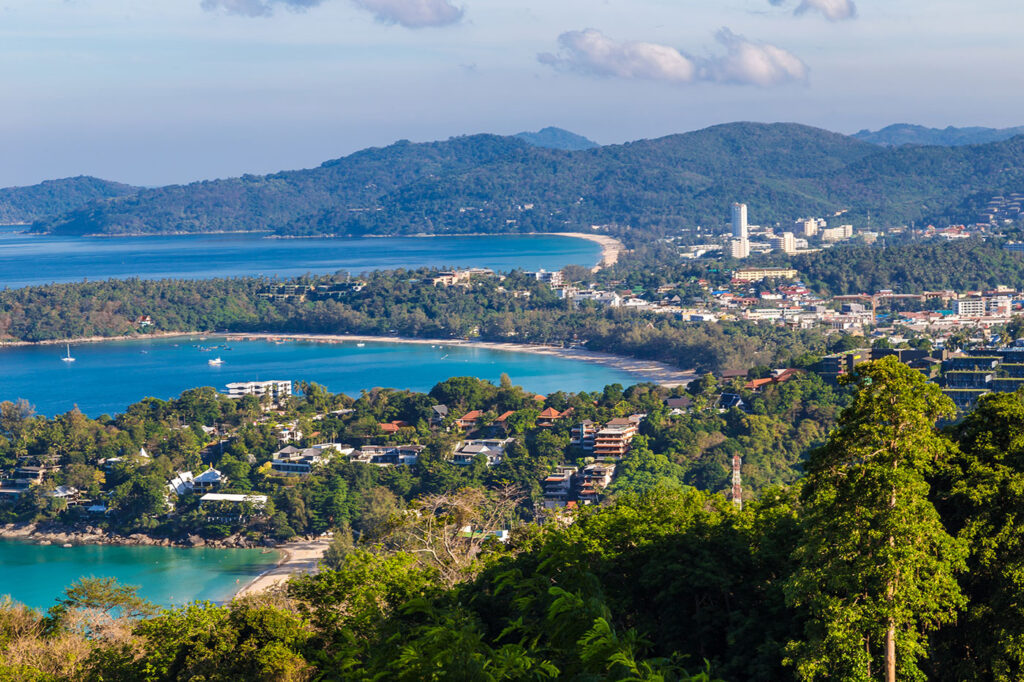This morning, I received this message via WhatsApp from a longstanding client who contacted me regarding a new freehold villa listing: “Can I ask what’s the latest on the legal side for villa ownership? I read the government was looking to extend to 99 years and nominee ownership was being investigated everywhere.”
As an agent who has been marketing property in Thailand for many years, one recurring question often comes to mind: when, if ever, will the Thai government reform the laws governing foreign ownership of property? Specifically, what is needed are viable, simple legal structures that allow secure long-term ownership of villas, apartments, and land, to complement the framework that already exists for foreign freehold condominiums.
Over the last few years, there has been an accelerating level of scrutiny over the structures used by foreigners to purchase freehold villas and land, notably use of Thai nominee shareholders within company ownership frameworks.
The May 2024 publicised crackdown on foreign companies using nominees in Phuket (Operation Nominee Sweep), followed in June 2025 by a draft bill proposing to criminalise the provision of such nominees, marks a clear and determined policy of enforcement. The intent is no longer in question – a blind eye will not be turned to circumvention of the law by nominee corporate holding structures.
But this raises an obvious question: if the use of corporate holding structures for foreign property ownership is no longer an option – and let’s be clear, it never was strictly legal, even if it was commonly employed – when will a workable replacement be introduced? Long-term, legally secure ownership structures for foreigners are not just desirable, they are long overdue.
The total prohibition of nominee-based corporate holding structures not only affects demand – it also risks triggering a liquidity crisis in the villa resale market. Put simply: what will happen to all the companies with foreign directors currently used to hold freehold villas and land? And how will those owners be able to sell their properties if no legal pathway is offered?
This issue regarding foreign freehold ownership is also more pertinent than ever given the uncertain global environment of 2025 and Thailand’s need to attract foreign capital. With volatile financial markets, many investors are looking to reposition into tangible assets, and property is a natural choice. Phuket combines lifestyle appeal and long-term value with relative insulation from financial shocks, supported by a cash-based, tourism-driven market and high-net-worth buyers. But for Phuket to continue to attract sustained high levels of foreign investment, buyers need legal certainty through transparent, secure long-term ownership options.
In this article, we clarify what is really meant by freehold ownership of property in Phuket, provide a recap of recent enforcement actions and proposed legal reforms, and examine what the future may hold for foreign investors.
See our full Phuket property market overview
What Foreign Freehold Actually Means in Thailand
In Thailand, there are only two ways a foreigner can directly acquire property on a freehold basis: buying a freehold condominium – this is a unit available in 49% quota of a registered condominium development, or indirectly by using a corporate holding structure for the freehold.
What Foreign Buyers Really Need: Secure Long-Term Tenure
But a freehold title isn’t the only path to secure ownership. What most foreign buyers are really looking for is long-term tenure, the practical equivalent of what is available in their home country. In other words, they want secure ownership rights for a length of term long enough to make a meaningful lifetime investment which can be passed on to future generations.
A properly structured 99-year lease, if introduced through legal reform and registered with the land office, would provide a high level of long-term security for foreign buyers. At present, however, Thailand still limits lease terms to 30 years, and although renewal clauses are common, they are not automatically binding under Thai law. This is why the proposed reform, extending lease terms to 99 years, would be so significant. If enacted, it would remove much of the uncertainty that currently surrounds leasehold structures for foreigners and provide a viable alternative to freehold ownership.
Many buyers do proceed on the basis of renewable lease structures, typically 30+30+30. While the renewal terms are stated in the contract, they are not guaranteed by statute and may or may not be enforceable under Thai law. However, this does not mean such leases are without security. In practice, the perceived safety often comes from the reputation of the developer, the strength of the contractual documentation, or the involvement of a branded residence operator with a long-term commercial interest. These factors can offer a level of practical assurance, even if not backed by statutory protection. However, the clear limitation here is that this security is dependent upon the developer or the brand, a situation which is hardly ideal.
Until the legal framework evolves to support true long-term tenure, whether through extended lease terms or other secure structures, foreign buyers will remain constrained by workarounds. And as nominee-based corporate ownership becomes untenable, the lack of a viable alternative becomes more pressing.
Note: if the 99-year lease reform is enacted, it will also be important to ensure that straightforward transferability to next of kin is addressed as part of the legal framework.
Why Phuket Is Relatively Well Positioned Amid Legal Uncertainty
Despite the uncertainty surrounding freehold villa ownership, Phuket remains better positioned than all the other Thai resort markets – most notably Koh Samui, Pattaya, and Krabi. What sets Phuket apart is not just the presence of foreign freehold condominiums, but the combination of three critical factors: a diverse selection of freehold-eligible apartment stock (freehold condominiums), a well-established branded residence sector (17% according to C9 Hotelworks: Phuket Property Market Update May 2025), and a deep pool of experienced, large-scale developers – able to offer a level of security over lease renewals. Other markets may share some of these traits – Pattaya, for example, has ample freehold condos, and Bangkok, if you consider it a resort destination, also has a large supply of freehold condos, plus branded residences and prestigious developers. But none of them combine all three within a lifestyle-driven beach resort setting. Phuket is unique in combining legal and structural depth with natural appeal, and that matters to the type of long-stay and second-home buyers who dominate this market.
However, these factors – a diverse supply of freehold condominiums, branded residences, and experienced and reputable developers – do nothing to solve the legal challenges facing foreigners who already own villas through corporate holding structures. But they do help support continued demand by offering more secure and transparent alternatives. What is lacking is simply a viable exit strategy for properties held in companies by foreign owners. Without this, they face a serious liquidity issue.
The 2024–2025 Crackdown: From Tolerance to Active Enforcement
For more than two decades, company ownership was a common way for foreigners seeking perpetual ownership to acquire villas in Phuket and throughout Thailand. Despite the legal fragility of these structures, with anonymous nominee shareholders provided by lawyers, they became widespread, normalised by practice, and facilitated by legal professionals.
But in 2024, the Thai government began a far-reaching investigation into companies suspected of using nominee shareholders to illegally own land. The most high-profile example was Operation Nominee Swoop in Phuket, which involved the investigation of thousands of companies, numerous arrests, and the seizure of assets. The campaign marked a clear shift toward stricter scrutiny, particularly in the tourism and real estate sectors.
In May 2025, Deputy Commerce Minister Napintorn Srisanpang proposed new legislation that would criminalise the act of providing nominee structures, with the stated aim of dissolving non-compliant companies within six months. As part of this initiative, the Ministry of Commerce and the Ministry of Interior are jointly investigating around 46,000 companies across six business sectors suspected of using Thai nominees. Provincial governors have been instructed to lead task forces to inspect these firms, with timelines ranging from three to six months depending on the province.
The most recent development came in June 2025 (source: Bangkok Post, 18 June 2025), with the announcement of a new big data screening tool known as the Intelligence Business Analytics System (Ibas). Developed by the Ministry of Commerce, Ibas is designed to identify nominee businesses by analysing links between individuals and entities across multiple government databases. According to the Commerce Ministry, 46,918 companies with partial foreign ownership, defined as shareholders holding between 0.001% and 49.99%, are currently under review. Four provinces were identified as key hotspots, including Phuket, which alone accounts for 6,682 flagged entities. The system is expected to go live in August and reflects a further tightening of nominee enforcement through technology-driven means.
We must note that the definition of a nominee has always been somewhat ambiguous in practice. It is quite common for Thai shareholders of property-holding companies to receive dividends, yet by most normal definitions, nominees are not expected to receive financial compensation. However, the mere receipt of dividends is no longer sufficient to pass the nominee test, nor to withstand the current level of scrutiny.
When many foreign buyers originally acquired villas through corporate structures, there was little reason to anticipate such a dramatic shift in enforcement. Although nominee arrangements were never legal, they were widely tolerated in practice, and even legal professionals could not have predicted the current drive to criminalise them. The result is that many owners now find themselves holding valuable assets with no clear legal pathway to exit.
As Yet No Clear Alternative: Lease Extension and Foreign Quota Expansion Still Pending
In 2024, the Thai Cabinet endorsed two high-profile reforms:
- Extending maximum lease terms from 30 years to 99 years
- Increasing the foreign ownership quota in condominiums from 49% to 75%
These proposals were widely reported in the media and welcomed by real estate industry groups. But despite cabinet-level backing, both reforms remain in flux:
The lease extension would require multiple legal amendments. According to the Bangkok Post and internal Ministry guidance, the proposed 99-year lease reform would involve changes to several laws, including Section 4 of the Rights over Leasehold Asset Act, the Civil and Commercial Code, and the State Property Act. The current framework under review suggests that Thai landowners wishing to lease to foreigners would need to transfer title to the Treasury Department, temporarily converting the land to state ownership for the lease term. This approach aims to preserve Thai land ownership while offering greater tenure security to foreigners. However, it would also require public consultation under the constitution, and certain sectors such as agriculture and low-income housing would be excluded.
Conservative critics argue that the 99-year lease proposal is tantamount to selling Thai land to foreigners, a historically contentious issue.
The proposal to increase the foreign condominium quota from 49% to 75% faces similar resistance and has not progressed legislatively.
While both reforms are significant, the leasehold extension carries far greater implications for the market. Freehold condominiums can already be purchased by foreigners up to the 49% quota within a registered development. If a foreign investor wishes to acquire a unit from the remaining 51% Thai quota, this can still be done via a company holding structure or lease. It is easy to overlook the fact that an extension of the lease period to 99 years would not only open up long-term ownership of villas, houses, land, and ‘regular’ apartments, but also provide a secure tenure option for this portion of the inventory in a freehold condominium development, to some extent negating the need for increasing the foreign ownership quota.
Explore our freehold and leasehold condos for sale in Phuket
Thailand’s legal system also requires multiple layers of approval, even after a Cabinet resolution. For example, the 99-year lease proposal would require title deed transfers to the Treasury Department for leasing and face public consultation under the Constitution. For now, the practical reality is that neither proposal is anywhere near becoming law.
Resale Reality: A Liquidity Problem in the Villa Market
Without doubt, there is already a liquidity issue for villas held in corporate structures by foreign owners. Many of these properties are already on the market, and others are being withheld from sale due to the increasing legal complications around acquisition. While it remains to be seen whether this develops into a full-blown crisis, what is beyond doubt is that a practical solution is needed not only to restore resale liquidity but also investor confidence.
View our full selection of villas for sale in Phuket
What Comes Next — And Why Policy Clarity Is Essential
According to Knight Frank (source: Villa & Condominium Market in 2024 Year-End Report), 2024 marked the strongest year for the Phuket real estate market in over a decade, with both condominium and villa transactions reaching record highs. These remarkable performance figures are the result of several years of post-pandemic strength, yet there is now a real risk of triggering a liquidity crisis in the freehold villa resale market, one that could seriously impact both supply and demand.
Read our 2025 Phuket real estate market trends report
Foreign investors are understandably anxious to see how this unfolds. Fully criminalising nominee use without offering a viable replacement structure would undermine resale conditions and freeze market momentum. At the same time, for practical purposes, the demand for freehold resale villas held in company structures at the low- to mid-market level will fall to near zero levels.
Buyers need clarity and assurance over long-term investment structures. Sellers need a viable exit strategy. The proposed changes – notably the extension of lease terms from 30 to 99 years – would, without doubt, be a major step in the right direction for foreign investment in Phuket and Thailand more broadly. But the practical implementation, and how this would apply to existing holding companies, remains highly complicated.



